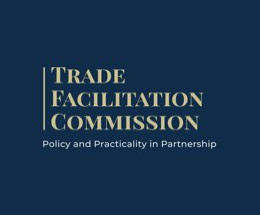- The gap between process safety goals and reality has widened, according to Sphera's 2022 safety report
Data from Sphera's latest security report reveals a persistent gap between intent and reality for process security management, with ESG a growing consideration for PSM and ORM practitioners
CHICAGO, Oct. 20, 2022 /PRNewswire/ -- While there has been a continued expansion of corporate ESG efforts, and most companies have adopted safety as part of their corporate culture, there are still gaps to address to improve process safety performance, reveals Sphera's new 2022 Safety Report.
Sphera, a leading global provider of environmental, social and governance (ESG) risk management and performance consulting software, data and services, surveyed 280 process safety and operational risk management professionals from around the world on the state process safety management (PSM) and operational risk management (ORM). The results show that 69% of respondents indicate that there is a gap between their companies' process safety objectives and process safety as they experience it. This is a significant increase from the 2021 survey, in which 21% of respondents reported a gap between security intent and the reality of what is happening. The finding that only 67% of safety-critical maintenance is accomplished in a typical month illustrates the disconnect between intent and reality.
Persistent challenges such as limited resources and limited budgets could at least partially explain the widening gap. Trends like The Great Resignation could also be a contributing factor, because process security can be compromised when employees leave and experience is lost.
The top three challenges identified by respondents as a barrier to effective PSM are management challenges (46%), training and competency (45%), and insufficient frontline engagement to improve awareness (34%). ). Respondents indicated that the top three key drivers of safety performance are reduction of operational and major accident (MAH) risk exposure (66%), operational excellence (57%) and regulatory compliance (49%) .
For seven years, Sphera's Annual Security Report has examined the current state of PSM and ORM in the context of global events and macroeconomic trends. Respondents came from various global industries, including manufacturing, oil and gas, chemicals/petrochemicals, energy, construction, and engineering.
The rate of adoption of technology solutions is identified as a particular area for improvement in the Security Report. Virtually all respondents (96%) said the technology enables effective PSMs and ORMs. However, adoption rates still do not reflect perceived value, with only 11% of respondents indicating that their business uses the full range of available technology solutions. Several factors, such as lower maturity levels and the challenges of connecting disparate systems and data, could be attributed to this slow rate of adoption.
"The 2022 Security Report reveals a persistent gap between process security goals and reality, and the disconnect between awareness and adoption of technology solutions is an additional hurdle for organizations to overcome," said Scott Lehmann, Vice President Product Management for Sphera's Operational Risk Management. "Technology that provides real-time data and actionable risk assessments can help connect the dots across the organization to bridge the gap and drive security improvement efforts. Relying on a range of tools for compliance and decision-making predictive and enhanced decision-making can help businesses keep their people safe and operations productive."
Security is the foundation of any strong organization, and PSM and ORM play a vital role in a company's ESG performance. In the context of the ESG framework, PSM is about keeping people, and the communities in which companies operate, safe. For the first time in the Security Survey, PSM and ORM professionals were asked where PSM fits into their company's ESG program. While an overwhelming majority (87%) said that PSM fits into their company's ESG efforts, there is little division on which aspect of ESG (environmental, social or governance) most clearly applies to their PSM program. However, when asked which impact scenarios are of most concern to their business, 71% of respondents indicated environmental impact scenarios.
"It has become increasingly clear that ESG is no longer nice, but a must," added Paul Marushka, CEO and President of Sphera. "A company's risk mitigation efforts are intrinsically linked to ESG performance, and putting ESG into practice across the organization will drive informed decision-making and help PSM and ORM professionals manage and reduce risk." of ESG".
About the security survey
Sphera surveyed 280 process security and operational risk management professionals on the current state of PSM and ORM within their organizations for the 2022 Security Report. Respondents came from various global industries, including manufacturing, oil and gas, energy , chemical/petrochemical products, construction and engineering, among others.
About Sphera
Sphera is the leading provider of environmental, social and governance (ESG) risk management and performance consulting software, data and services focused on environment, health, safety and sustainability (EHS).
For media inquiries please contact: Astrid Dickinsonsphera@aspectusgroup.com
logo - link
View original content: enlace













